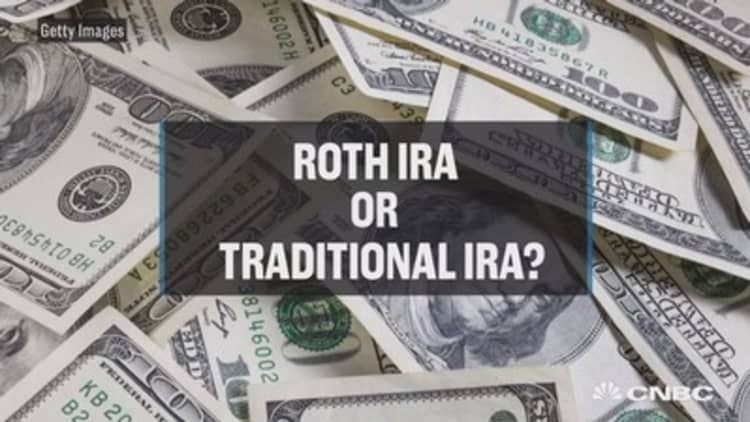You might want to add one more thing to your to-do list for Tax Day: topping off your retirement savings for 2018.
Even though that tax year has come and gone, you still have until April 15 to make your individual retirement account contributions for that year.
In 2018, you were able to put up to $5,500 in either a traditional or Roth IRA. If you're 50 or older, your limit for that year was $6,500.
If you want to add this to your tax to-do list for April 15, there are some things you need to keep in mind.
Save the date
Even if you put off filing your return by putting in for an extension, the deadline for your IRA contribution for 2018 is still April 15.
That's particularly important to remember this tax year, when more people might want more time to sort through the changes from the Tax Cuts and Jobs Act, said Ed Slott, an IRA expert and founder of Ed Slott & Co.
"A lot of returns are going to be on extension, but if they haven't made an IRA contribution [for 2018], there's no extension on that," Slott said.

Max out your contributions
To position your money for the most gains, you should ideally invest that money early in the year.
If you can, Slott suggests funding both your 2018 and 2019 IRA contributions now. If you have to choose just one, put in the funds for 2018 before your ability to do that expires.
Keep in mind that you can contribute more to an IRA for the 2019 tax year — up to $6,000, plus an additional $1,000 for those who are 50 and over.
When making these contributions, be sure that your financial institution or advisor designates the funds for the appropriate years, Slott said.
Consider other ways to invest
A spousal IRA lets you put away retirement funds on behalf of a spouse, even if they have little to no earned income. But you must have wages or earned income in order to make that investment.
Other restrictions apply, depending on whether you are investing in a traditional or Roth IRA.
If you plan to fund a spousal IRA for 2018, the same April 15 deadline applies.
More from Personal Finance:
Here's how tax refunds are looking halfway through tax season
Your spending may fluctuate wildly in retirement. Here's how to plan for that
Is paying your taxes with a credit card a good idea?
A back-door Roth IRA lets you put funds in a traditional IRA and eventually convert that money to a post-tax Roth.
This strategy is helpful for individuals whose income is too high to contribute directly to a Roth IRA.
The funds can be converted to a Roth at any time. But in order to get the back-door Roth process started, you must make the contributions to a traditional IRA by April 15, Slott said.
Residents of two states — Maine and Massachusetts — have until April 17 to file their federal taxes this year. Those states observe Patriots' Day on April 15 and Washington, D.C., celebrates Emancipation Day on April 16. Holidays in the nation's capital affect tax deadlines in the same way as federal holidays, according to the IRS.


